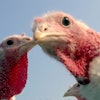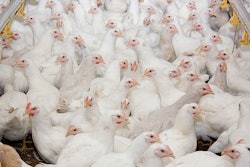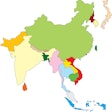The United States Department of Agriculture’s (USDA) Animal and Plant Health Inspection Service (APHIS) is proposing a new National List of Reportable Animal Diseases (NLRAD) to further strengthen the country’s ability to detect, respond to and control animal diseases. The new list will provide a consolidated, comprehensive set of guidelines to ensure Federal and State animal health officials quickly receive information about potential cases of communicable animal diseases. This helps ensure that serious diseases are reported earlier, which can help speed our response time and lessen the overall impact on producers and the economy.
The proposed list spells out exactly which animal diseases need to be reported to Federal and State officials, how quickly they need to be reported, who needs to report them, and to whom they need to report them. It will have sections for notifiable diseases/conditions as well as monitored diseases. Notifiable diseases include foreign animal diseases, newly identified diseases and some serious endemic (found in the U.S.) diseases. Monitored diseases include endemic diseases of interest. This proposal does not include the reporting of notifiable diseases in wildlife. However, APHIS welcomes public comment regarding how the occurrence of notifiable diseases in wildlife should best be addressed within the NLRAD, especially when reservoirs of a notifiable disease are determined to exist in wildlife within a State.
Diseases on the notifiable list must be reported immediately to both State and Federal officials. This ensures timely response actions can be taken. Monitored diseases would be reported through periodic summary reports. The proposed rule will also expand the list of people required to report these diseases beyond just veterinarians and laboratories to include other animal health professionals who may encounter them, including veterinary medical professionals, diagnostic laboratorians, biomedical researchers, public health officials, animal health officials, trained technicians, zoo personnel, and wildlife personnel.
Having this comprehensive, national list will also help APHIS better meet international reporting obligations. Current U.S. reporting requirements only require accredited veterinarians to report some of these diseases, and do not cover the entire range of diseases necessary to meet international reporting needs. The United States must submit reports to the World Organization for Animal Health (OIE) on the status of certain diseases of livestock, poultry, aquaculture, bees and, in some instances, wild terrestrial and aquatic species. APHIS currently relies on voluntary reports for many endemic (diseases found in the U.S.) and emerging (newly discovered) diseases, which makes it more difficult to provide this information to the OIE.
APHIS is seeking public comment on this proposed rule for 60 days following publication in the Federal Register. All comments will be considered before moving forward.


















